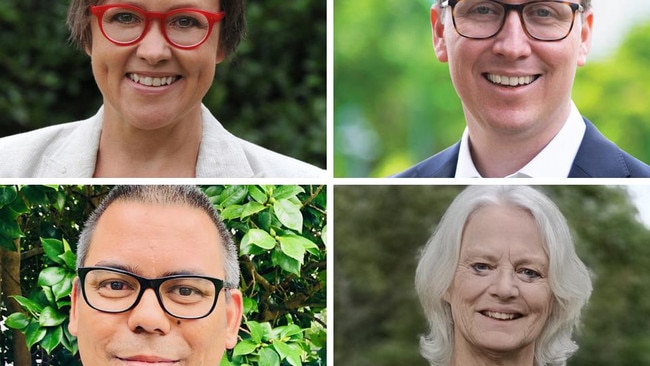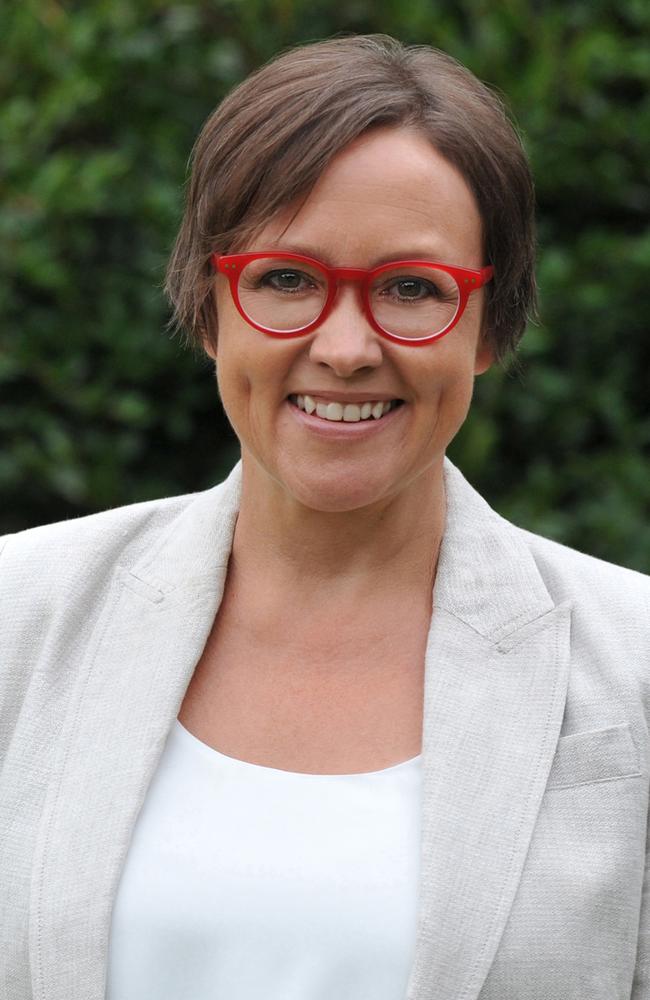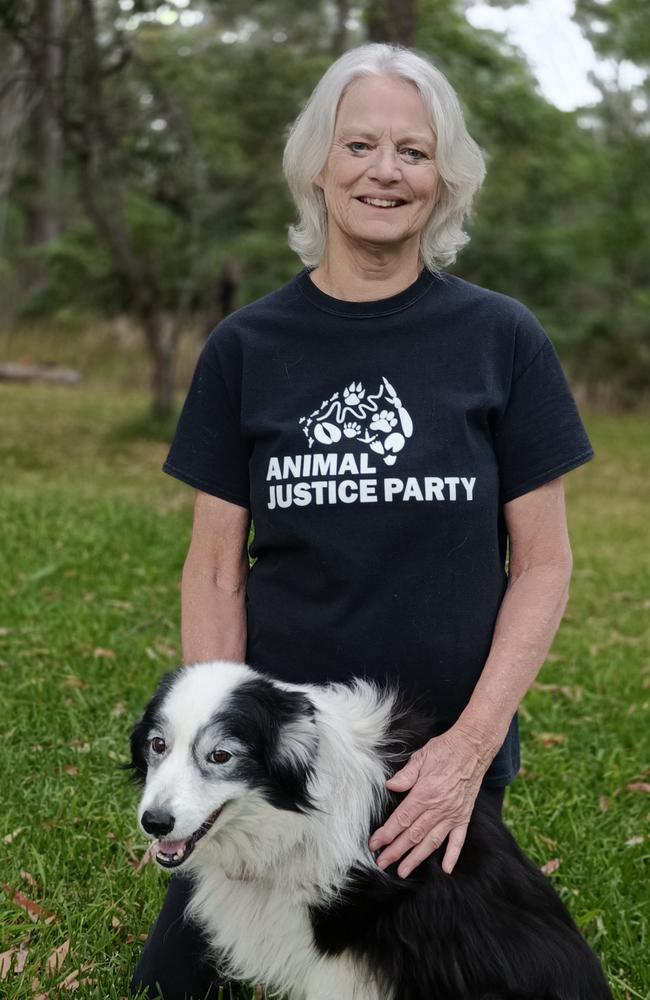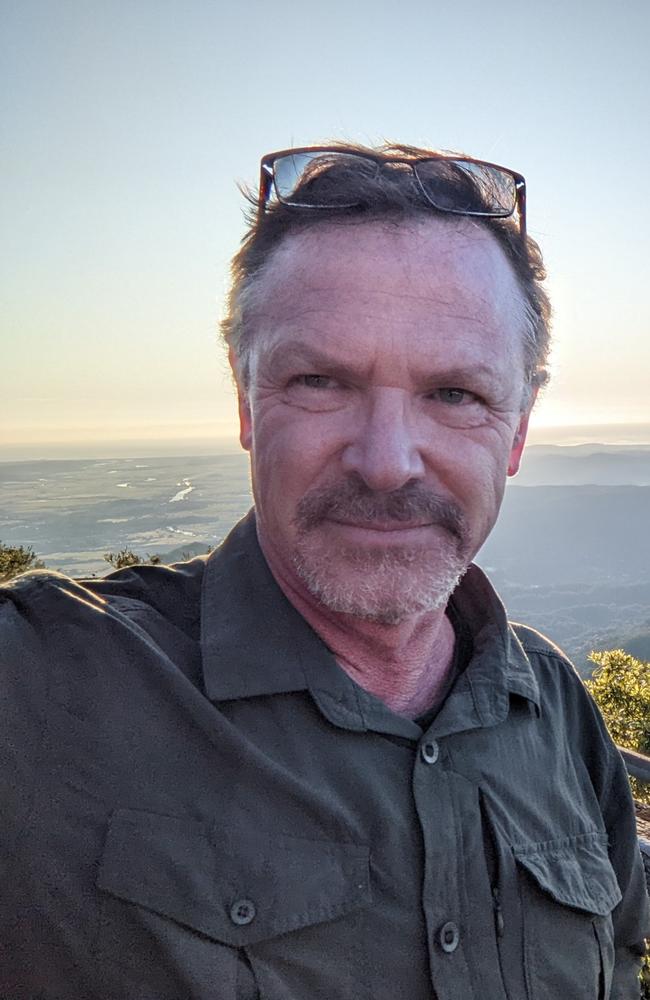Hornsby by-election: Candidates on cost of living, school capacities, high-density housing
With voters set to descend on polling booths for Saturday’s Hornsby by-election, those vying for your support have candidly spoken about the big issues that impact you. See their answers here.

Hornsby
Don't miss out on the headlines from Hornsby. Followed categories will be added to My News.
As voters prepare to head to the polls for this Saturday’s Hornsby state by-election, we spoke to candidates about the biggest issues facing the electorate.
See their responses below:
Tania Salitra – The Greens

The cost of living is a major issue in the electorate. How do you intend to tackle this, if elected?
Our housing and cost-of-living crisis was created by decades of bad policy that deliberately prioritises property investor portfolios ahead of first-home buyers, suppresses wage growth to the benefit of corporate profits and sells off public housing and essential services like electricity, roads and buses.
Cost of living is a huge issue, especially for people on a fixed income. Rents have skyrocketed since 2020, successive interest rate rises have made mortgage repayments impossibly high. People are having to choose between buying food and going to the doctor or dentist. Many people are just one rent increase away from being homeless.
The state government knew low-income earners were already in rental stress paying over 60 per cent of their income to keep a roof over their head, way back in 2015, but did nothing. Nine years later, still nothing.
The Greens is the only party willing to tackle the cost-of-living crisis, with policies that go straight to addressing the root cause, They include:
- Freezing rents and capping future increases;
- Cheaper energy bills with a faster transition to 100pc renewable energy;
- Ending and reversing the privatisation of essential services that has driven up costs like electricity and toll roads. Essential services must be publicly-owned;
- Urgent building of publicly-owned affordable housing to replace the $3 billion in housing stock that was sold off by the previous government;
- Cheaper public transport;
- Free high-quality education from preschool to TAFE;
- More funding for public dental and mental health care
- Paying nurses, midwives, paramedics and teachers appropriately and;
- Ensuring appropriate funding for world-class care at public hospitals.
A lot of public schools in Hornsby are above their enrolment capacity. What is your answer to this issue?
Our public schools have been bursting at the seams for quite some time now and this will become much worse with the housing target demanded by the State Government for our area. We must reduce teacher-to-student ratios for better learning experiences and outcomes and to improve working conditions for teachers.
Both major parties set housing targets to cater for increased populations without offering or supplying any real investment in supporting infrastructure, like new schools.
Adding a few new classrooms just won’t cut it anymore.
We urgently need a new coeducational high school in, or near, Hornsby so our children don’t have to travel long distances to school.
But it’s not just the overcrowding.
Teachers are overworked and underpaid while parents must buy basic teaching supplies for the classroom and pay for additional tutoring.
Children with learning difficulties are being left behind because schools just don’t have the resources to give them the attention they need to thrive.
Our public schools are underfunded by $2 billion each year while private schools revel in their hundreds of millions of dollars in over-funding by taxpayers, which enables the building of state-of-the-art indoor pools and performance theatres, for example.
Do you support high density housing? Why or why not? And, if the answer is yes, how do you intend to address high density housing if elected?
I support appropriate development, not overdevelopment.
This means we should be building up, not out — and building close to existing quality infrastructure like train stations to protect our rural and agricultural land.
It would be devastating to see Hornsby’s rural and farmlands being swallowed up by housing as has happened in nearby areas.
We are so fortunate to still have arable farmland and, with an increasingly insecure future, we will need all the agricultural land we can get.
It’s also now cost prohibitive to build out, as the cost to deliver roads, utilities and other infrastructure like schools, is just too high.
We can’t keep carving up agricultural and rural land for greenfield development, which turns paddocks into a sea of corrugated and concrete tiled roofs. Houses are jam-packed together with barely any front or back yards.
The urban sprawl concept has become unliveable and unworkable because of the loss of trees and vegetation, the poorly planned roads and lack of supporting infrastructure that may never be delivered because of the developer-led system underpinning it.
Driving through some areas and seeing the devastation that poor planning and overdevelopment can wreak on our neighbourhoods and environment, is quite unnerving.
Precious farmland is locked up behind cyclone fencing, with developers waiting for the most profitable time for it to be bulldozed.
Appropriate development is also environmentally sustainable, with climate change and energy efficiency front and centre of design that includes important landscape features like deep soil planting for trees.
Anything else to add?
As a Hornsby Councillor, I heard how frustrated people are with being treated like a political football, neglected by Liberals because we are a safe, conservative seat and ignored by Labor because we are a safe, conservative seat.
Having lived in other electorates, I know that it could be better and we deserve better.
I have a proven track record of standing up and delivering for our community. There is so much that needs attention and there’s no time to lose.
With Liberals in government for 12 years, they just couldn’t quite get round to addressing our greatest needs — better public schools, safer roads, affordable housing for essential workers, and making sure future generations can buy a home.
Instead, they offered pork-barrelled funding for trophy projects we couldn’t afford with a deadline that they knew couldn’t be me.
They handed over Epping to another council, losing $10 million in rates each year.
These both contributed to the increase in council rates at the worst possible time as the cost-of-living soared.
And they cut local buses when the Cherrybrook Metro rail was delivered with a paltry 400 car spaces.
Now with Labor in government, I’m really worried about the impact of the low to mid-rise housing planning changes on our tree canopy and neighbourhoods.
But there is still reason for hope. It’s really exciting to see more and more people voting Green in this electorate — the tide is definitely turning.
Justin Thomas – Sustainable Australia Party

The cost of living is a major issue in the electorate. How do you intend to tackle this, if elected?
The cost-of-living crisis is mainly driven by the housing crisis, which itself is mainly driven by federal government-engineered hyper-demand through investor tax concessions, foreign investment and record high immigration-fuelled rapid population growth.
If elected, I would advocate to moderate all these issues, as well as deliver significantly more public housing at the state level.
A lot of public schools in Hornsby are above their enrolment capacity. What is your answer to this issue?
Sustainable Australia Party is the only political movement to address the root cause of the overcrowding of infrastructure, being housing overdevelopment and related rapid population growth.
We need to both significantly slow this growth and ensure we get new community infrastructure at the same time more housing is approved.
Do you support high density housing? Why or why not? And, if the answer is yes, how do you intend to address high density housing if elected?
Sustainable Australia Party supports an end to sprawl to protect our bushland and farmland, as well as more ‘gentle infill’, ideally capped at a more reasonable six stories.
The current rampant overdevelopment is giving us little chance to save our environment including our urban tree canopies, or deliver proportionate new community infrastructure to match the high-rise.
We need all of the necessary new community infrastructure including schools, hospitals, public transport, roads, recreational and sporting facilities, green space, etc before, or with, more housing density to protects Hornsby’s environment, heritage and liveability.
We are hoping more and more voters come to our view in how all these issues are connected.
Anything to add?
Sustainable Australia Party is the only political movement to put our environment, built heritage and community first.
This is all critical for our health, socio-economy and quality of life.
As a long-term resident and renter in Berowra with my partner and two young children, I know the challenges of family life including budgeting.
I’m asking voters to vote for Sustainable Australia Party to send the big parties a message that we are heading in the wrong direction.
It’s time to put our environment and community first, and properly address housing affordability and the cost-of living crisis.
Sheila Millgate – Animal Justice Party

The cost of living is a major issue facing the electorate. How do you intend to tackle this, if elected?
The cost of living is a significant concern, and the Animal Justice Party (AJP) would focus on addressing it through several policies.
- . I will push for investment in affordable, eco-friendly housing and improved public transport, which would reduce the burden of housing costs and commuting expenses. The AJP supports policies that encourage energy-efficient homes and expanded public transport infrastructure to help reduce daily living expenses, such as utility bills and fuel costs.
- . I will advocate for renewable energy sources, which can lower energy bills over time. A transition to renewable energy at a state level can decrease household electricity expenses while also contributing to a cleaner environment.
- . I will also advocate for transitioning towards plant-based agriculture, which could lower food costs by making healthier plant-based foods more affordable and accessible. By supporting local, plant-based farming, this policy can reduce food-related expenses for families while benefiting the environment.
- . Being on a low income shouldn’t mean your companion animal suffers. In a cost of living crisis pets and injured wildlife are often not getting the care they need because animal rescuers can’t afford it. I intend to introduce a bulk billing model — Veticare — for veterinary care across NSW with priority given to concession card holders, pensioners and animal rescuers and carers for both pets and wildlife.
A lot of public schools in Hornsby are above their enrolment capacity. What is your answer to this issue?
- . I would support increased investment in public school infrastructure, including building new schools and expanding existing ones. This would help reduce overcrowding and ensure all children have access to quality education in adequately resourced environments.
- . I will push for a fairer distribution of state resources to ensure public schools in high-demand areas like Hornsby receive the necessary funding for expansion and additional facilities.
- . Our policies prioritise smaller class sizes and support teachers by increasing funding for education, thereby ensuring every student gets the attention they need.
Do you support high density housing? Why or why not? And, if the answer is yes, how do you intend to address high density housing if elected?
The Animal Justice Party has a balanced approach.
Our policy is that we might support high-density housing if it aligns with sustainable and ethical urban planning. High-density housing can reduce urban sprawl and preserve green spaces, which is important from an environmental standpoint.
However, it would need to be developed with sustainability in mind.
I plan to advocate for sustainable high-density housing projects that prioritise energy efficiency, green spaces, and access to public transport.
This could include eco-friendly designs, solar energy installations, and community green areas that enhance quality of life while reducing the environmental impact.
I support policies that ensure high-density housing does not negatively impact local infrastructure or residents’ wellbeing. It should be done thoughtfully, with adequate planning for schools, public transport, and healthcare services to handle the increased population.
Anything to add?
These answers are consistent with the Animal Justice Party’s broader policies on environmental sustainability, education, and community welfare, focusing on long-term solutions for the electorate while aligning with ethical and environmental goals.
Our ethos across all our policies is for kindness, equality, rationality and nonviolence for all. I plan to work with all of government for the people of Hornsby to achieve our goals for a better life for its people, our animals and the environment.
Marc Hendrickx – Libertarian

The cost of living is a major issue facing the electorate. How do you intend to tackle this, if elected?
Our current cost of living crisis arises out of mismanagement of the economy and energy market by both major parties. If you want to point a finger, point it towards Liberal and Labor.
Mistakes made in tackling the Covid pandemic with irrational and unnecessary lockdowns resulted in major disruption to our society and skyrocketing inflation that is still not under control as governments pour more money into wasteful schemes that have massively increased our debt.
Additionally, despite having the world’s best coal and uranium resources, Australia has been purging cheap baseload power from our energy grid and replacing it with unreliable and highly costly and environmentally destructive wind and solar schemes with large government subsidies.
Since renewables entered our electricity system the price of power has skyrocketed and will continue to go upwards as more wind and solar enter the grid.
The Libertarian Party would tackle the issue by reducing the cost of doing business through cutting unnecessary red tape and taxes, cutting back on government waste, returning the proceeds as tax cuts and paying down our massive debt.
We would stop all subsidies to wind and solar and open the energy market up to efficient coal and nuclear power operations that would return real competition to the electricity market and lower prices to consumers.
A lot of public schools in Hornsby are above their enrolment capacity. What is your answer to this issue?
Dramatic increases in population in the electorate, especially around the Hornsby–Mt Colah corridor, has put considerable stress on our schools.
Planning for future growth by the major parties has been poor.
We need more schools the address the shortfall and, where possible, extensions to existing schools.
The Libertarians believe a new high school could be built at a 5ha site on the Pacific Hwy between Berowra and Cowan. This is perhaps the last suitable land north of Asquith and it should be reserved for this purpose and offered for development by the government or private schools.
Opening the education sector to innovative solutions provided by the private sector would help address issues.
Libertarians support the introduction of an education voucher system, with vouchers transferable between any accredited public or private school. This gives more freedom to parents to choose a school for their children.
We also support removing barriers to opening new schools.
Do you support high density housing? Why or why not? And, if the answer is yes, how do you intend to address high density housing if elected?
Australia’s population has doubled in my lifetime and based on existing trends we will be a country of 50-60 million by 2070.
Sydney’s population will double in size and the area within 10km of the CBD will look much like New York.
Our planning for growth has been very poor, ad hoc and reactive.
Focus remains on our large cities that attract the majority of growth and, in the absence of green field satellite cities to take natural growth, new arrivals and interstate migration areas of high density housing will become more common including the Hornsby Electorate.
The reality is that higher density housing is here to stay and our cities are fundamentally changing their character.
Plans already in place mean the Hornsby town centre will likely rival Chatswood over the next 20 years and this brings opportunities and challenges.
These challenges include conserving adequate areas of green space for recreation, schools and efficient transport links to cater for increased population. Much of this could be met with private sector investment.
Opportunities include increased local businesses, meaning more local employment options and less commuting as well as a more vibrant social life.
Libertarians support private property rights. If it does not affect another person’s property rights, you should have the freedom to develop your property the way you want, and we will support it.
Anything to add?
Our electorate is surrounded by national parks and our access to them is under threat through a policy put in place by the previous Liberal government, and continued by the Minns Labor government, of handing over ownership and control of all these parks to Aboriginal land councils.
With the five-year closure of Mt Warning in northern NSW we are seeing the damaging effects of this policy play out.
The cost to the economy is now $60 million with 600,000 people denied entry to climb the mountain and witness the extraordinary summit views.
The Libertarian Party is against race-based policies that result in division and separation in our public lands.
We will fight for equality of access to our natural wonders for all Australians.
James Wallace – Liberal Party

The cost of living is a major issue facing the electorate. How do you intend to tackle this, if elected?
Almost every door I knock on, and every person I speak with, tells me how difficult they’re finding it, with continuing rises in the cost of groceries, fuel, electricity, rent and mortgages. Hornsby households are struggling.
Raising my two-year-old son Ben, with my wife Sarah, I know how tough it’s been.
If given the opportunity, I will be a strong voice for Hornsby, fighting to bring back cost of living supports like Active Kids (vouchers), removing the burden of stamp duty from young people trying to buy their first home, and reversing the Labor cuts to the local public schools.
We need to get the policy settings right to reduce inflation and help people build wealth.
A lot of public schools in Hornsby are above their enrolment capacity. What is your answer to this issue?
I will fight for investment in our local schools. With a growing community, many schools are under pressure. I want every kid in the Hornsby electorate to go to a great local school.
Do you support high density housing? Why or why not? And, if the answer is yes, how do you intend to address high density housing if elected?
Yes, in appropriate locations.
As our community grows, we need to invest in local roads, schools and health care.
We need to ensure that this infrastructure is delivered first and that government has a plan to support new housing.
We cannot leave the infrastructure we need as an afterthought. This would result in worse congestion and strain on local schools and hospitals.
Anything to add?
I grew up in the Hornsby Shire and my family has lived here for five generations. It would be an incredible honour to represent the people of Hornsby in state parliament.
The Hornsby Shire is a great place to live, work and raise a family. My vision is for a caring, smart, creative and united community. This requires Hornsby to have strong and effective representation in state parliament.
Drawing on my legal background and passion for public service, I will fight for the critical road upgrades, sporting field improvements and cost of living support our community needs.
Only the Liberals have a plan to help local residents and small businesses through these difficult times, and deliver the infrastructure and services that Hornsby needs.
These candidates did not respond by deadline:
Steve Busch – One Nation
Roger Woodward – Independent
Benjamin Caswell – Independent
Brendan Clarke – Independent





